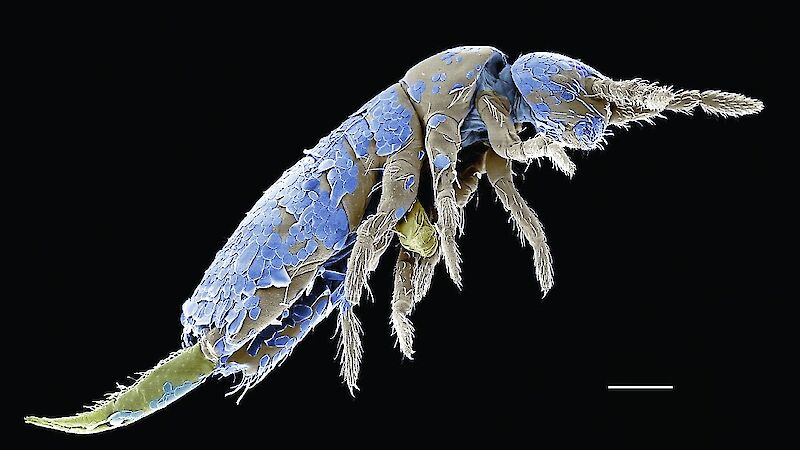The Invertebrates of Macquarie Island, published by the Australian Government Antarctic Division (AAD), was launched today at AAD headquarters in Kingston, Tasmania by the Director, Dr Tony Press.
The Invertebrates of Macquarie Island brings together, for the first time, more than 350 taxa, or groups, of organisms that do not have a backbone.
These include spiders, beetles, flies, butterflies, worms and crustaceans along with other abundant groups of invertebrates — such as springtails — too small to be seen clearly with the naked eye.
Together they contribute to the complex ecosystem of Macquarie Island, an island that is well placed for the study of the effects of environmental change on ecosystems.
The Invertebrates of Macquarie Island is the culmination of years of painstaking research by internationally-renowned taxonomist, Penelope Greenslade.
A chapter on insects led by Rieks Dekker van Klinken has also been included.
The book is complemented by extraordinarily beautiful sketches and paintings, and photographic and electron-microscopic images from a number of contributors.
Several sub-Antarctic islands, where weather conditions are less severe than the Antarctic continent, offer better conditions to study their animal and plant networks over extended periods. Macquarie Island is one such example.
The Invertebrates of Macquarie Island will be an invaluable resource for researchers and scholars whose interest lies in the extraordinary world of sub-Antarctic invertebrates. It will also appeal to any reader with a general curiosity in sub-Antarctic ecology.

